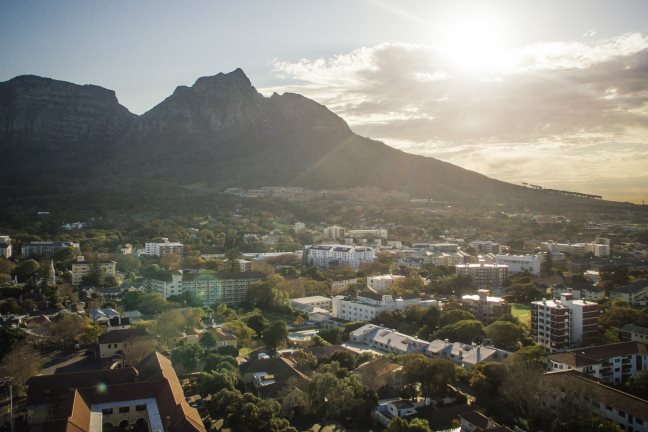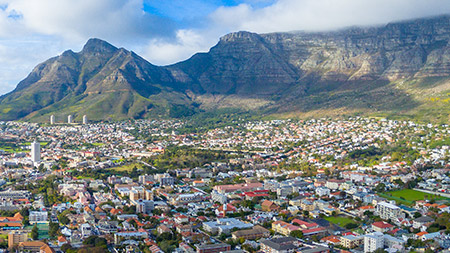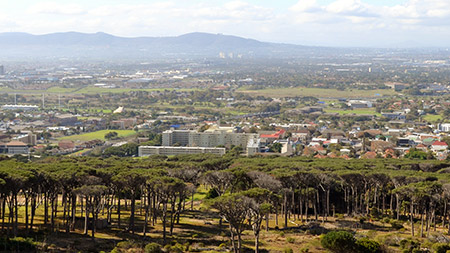It is not just the demand for residential accommodation that drives the Cape Town rental market, but added economic drivers such as tourism, conventions and events, corporate contracts and semigration according to the Seeff Property Group.
Cape Town has just been voted among the best cities in the world to live in the world by a Deutsche Bank Survey, outranking major global cities like Rome, London and Paris, as well as Johannesburg for offering a better quality of life.
Samuel Seeff, chairman of the group says that despite the challenges experienced over the last year, Cape Town remains the stand-out as the city with the best lifestyle and service delivery, two of the biggest drivers of the demand for rental accommodation.
Additionally, he says that when there is a degree of economic decline and the residential sales market dips, there is always a rise in demand for rental accommodation. Additionally, we have seen that as an alternative to emigration, there has been an influx into Cape Town from other provinces and these would-be buyers often rent first while they acclimatise to the city before deciding where to buy.
With the election over, it is expected that both tourism and semigration will pick up once more to provide further impetus to the market. The market has been under pressure over the last with stock levels rising while the monthly rentals have come under enormous pressure, but Ms Natalie Muller, rentals manager for Seeff Atlantic Seaboard, Waterfront and City Bowl says that after a period of high escalation, the market needed to take a break.
We are now entering the winter months and a number of Airbnb and holiday rental homes have flooded the market, so there is plenty of stock to come with an influx. Some sellers have also opted to rent out their properties while they wait for the market to improve, having felt the effects of the water restrictions.

What does this mean for landlords?
The market will stabilise, it always does, says Ms Muller. The market has come off a high base, having achieved annual increases of around 10% over the prior few years and escalations are now adjusting in line with the CPI.
Atlantic Seaboard and City Bowl
Escalations are down to 4,5%-6% and yields to around 2%-4%, but the Atlantic Seaboard and City Bowl remain popular, says Ms Muller.
The average monthly rental for Atlantic Seaboard houses is now at R35,000, 18-20% down since last year. Apartment rentals are also down, but still come in at around R18,000 on average given the higher demand from people looking to move closer to the city to save on petrol costs.
View homes available to rent in Atlantic Seaboard
Constantiaberg and Southern Suburbs
Sonya Garisch and Jacqui Bush, rental agents with Seeff say it has been a busy year with the traditionally quiet March actually being a record month for the team, although the market has since slowed with the onset of winter.
Most upper end landlords have kept their monthly rentals stable while the mid-range increase has been around 5%. High demand properties include gated communities in the rental bracket to R30,000/month, the mid-range of R15,000-R25,000 and realistically priced cottages and flatlets between R8,000-R10,000.
Houses average at R26,000/month in Tokai and R42,000 for the security estates while Newlands is R30,000/month, and Constantia at R46,000/month.
Marinda Bienz, also with Seeff Southern Suburbs says there is now an oversupply in the furnished rental market which is usually the case during winter. Tenants are spoilt for choice and can negotiate.
She also reports that most landlords have not escalated their monthly rentals or have settled for 3%-4% (down from 6%-8% in 2017). Some rental homes which achieved R37,000/month are now receiving offers of R28,000 while small homes are down to R12,000 from R16,000/month.
Family houses, secure complexes and student flats remain in demand. Apartments range from R6,000/month for one bedroom and R11,000 for two bedrooms. Townhouses range from R16,000 and houses in the top end areas such as Claremont Upper and Bishopscourt from R25,000-R95,000/month.
View homes to rent in Southern Suburbs here

Blouberg/Table View/Parklands
Nancy Oeschger, rentals manager for Seeff Blouberg says the area remains popular for its coastal lifestyle, excellent schools, top class amenities and affordability and is attracting tenants from all over including people moving from Johannesburg. It offers many security complexes and family friendly neighbourhoods.
Rental escalations are now at around 5%–7%, but she recommends that landlords offer flexibility to keep good tenants rather than risk a unit standing vacant given the oversupply of stock including many new developments. Two-bedroomed apartments are always in demand in the R7,500-R8,500/month range and houses from R14,000/month. Higher end properties are moving slower as people are looking to downscale their high living expenses.
View homes to rent in Blouberg
Hout Bay and Llandudno
Janine van Heerden, rental manager for Seeff Hout Bay and Llandudno says after rising significantly prior to 2016, rental prices have dropped by an average of 20% over the past two years and monthly rentals are now under pressure as there is an oversupply of stock.
An average one-bedroomed flat now rents out for R7,000-R8,500/month and from R9,500-R12,000 for two bedrooms. Family houses in the R20,000-R30,000/month range also remain in demand.
View properties to rent in Hout Bay here
Winelands/Boland
Marinda Uys, Seeff’s group rentals manager for the Winelands/Boland region also reports an oversupply with some properties taking up to three months to rent out and now often renting out for less than the previous tenant paid. Escalations are at of 3%-6%.
The R7,500-R10,000/month rental range is the most popular. Flats tend to rent out from around R3,500 for a bachelor unit to R7,500 for two bedrooms. Houses start at R7,000 for two bedrooms and from R9,000 for three bedrooms ranging to R15,000 for four bedrooms.
One area which still bucks the trend with demand outstripping supply, is Tulbagh. Melindi Beukman, a Seeff rental agent says there is big demand for neat one bedroomed units and properties under R5,000/month, but supply is limited. Depending on the rental bracket, escalations are still at 8%-10%, she says.
90% of all tenants want a long-term rental of twelve months and longer. Affordability is key with one-bedroomed units ranging from R2,800/month, two bedrooms from R4,000 while houses range from R5,600.
View homes to rent in Boland here
What does Seeff recommend in the current market?
Seeff’s agents recommend that landlords focus on retaining good tenants because it is better to have a good tenant than to sit with an empty unit. A three-month vacant period can be very costly.
Most tenants would prefer to stay and not suffer the disruption and expense of moving and may pay a little more than the market, rather than look elsewhere. Losing them, means you are looking for a new tenant who has more bargaining power.
If a tenant does leave (and they do for many reasons), set the asking rent at a competitive rate in line with the market. Sourcing a new tenant is costly and potentially risky and you may end up with a lower rent in a falling market.
Lastly, call in the experts. A Seeff rental agent can offer you the best advice and service, backed by market insight, expertise and a state-of-the-art rentals administration infrastructure.


